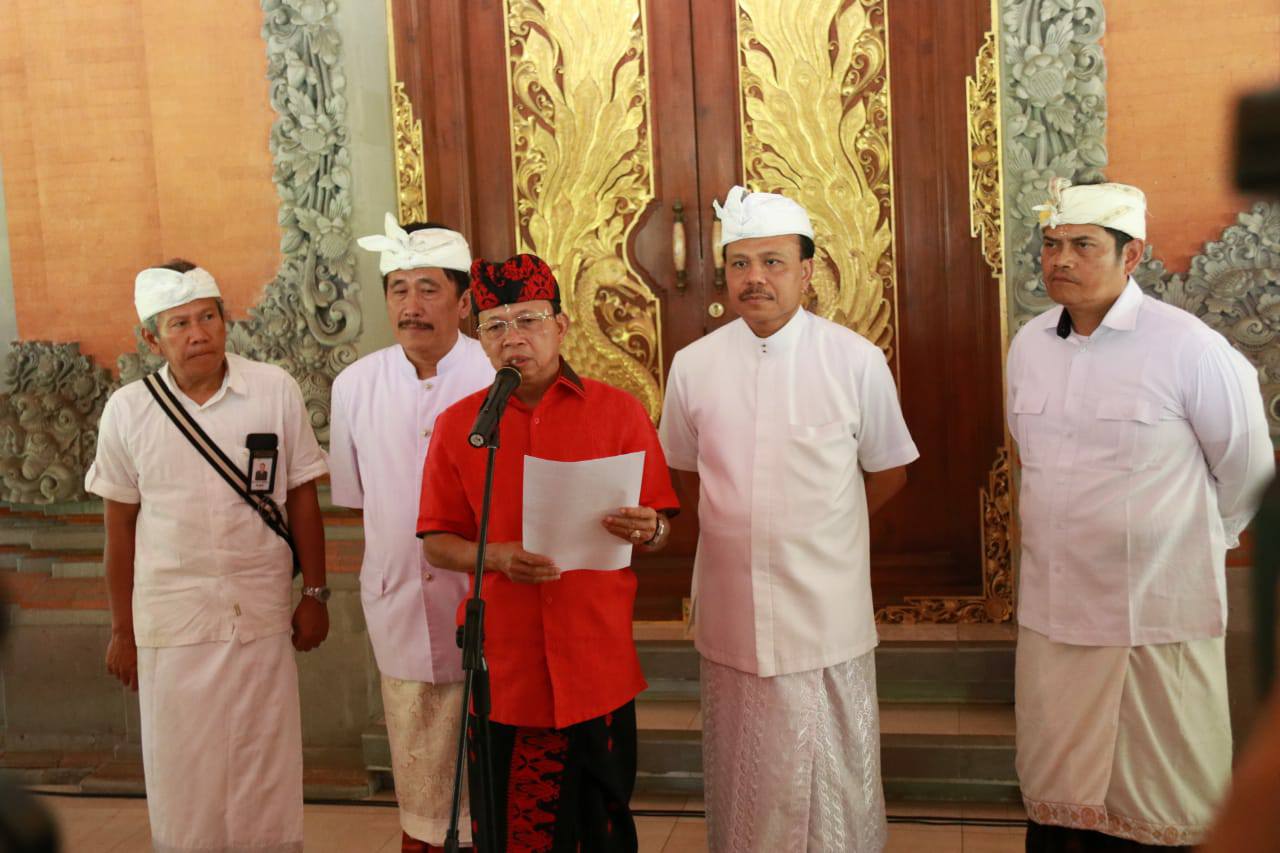It looks like the provincial government in Bali is still on track with its vision of a clean future for the island. Bali Governor I Wayan Koster has issued gubernatorial regulations on clean energy and electric motor vehicles, thus officially paving the way to make that vision a reality.
Koster announced in Denpasar yesterday that his office has issued 2019 Gubernatorial Regulations No. 45 and No. 48; the former deals with clean energy while the latter is set to regulate battery-based electric motor vehicles.
In terms of clean energy, Koster said that the regulation covers a total of five priority programs, including the development of environmentally friendly transportation and a clean energy research center. In addition, it also lays out plans to develop “green buildings” across the island, which will aim to be as energy efficient as possible, while also harnessing alternative sources of energy.
“The development of green buildings will target government buildings both in the [provincial] capital and districts, as well as commercial and industrial buildings, [and] houses that are more than 500 square meters in size,” Koster said, as quoted by state news agency Antara.
He explained that the timeline for these green buildings will begin in 2021 and hopefully conclude in 2024.
The use of alternative sources of energy, such as wind, solar, and geothermal, is also central to this policy, especially considering how Bali is facing an increasing energy demand.
Suwarjoni, Bali distribution general manager at the state electricity company (PLN), said that Indonesia’s biggest solar power plant will be located in Bali and is targeted to start operations either at the end of next year or as early as 2021.
With the second regulation, the government in Bali will start building the necessary infrastructure to accommodate electric vehicles, while also pushing local residents to switch to the more environmentally friendly option.
“We will encourage young people to use battery-based electric motorcycles. I have tried it myself, it has no exhaust so it’s not noisy, it’s very suitable for the youth,” Koster said, as quoted by Tribun Bali.
Koster noted that though electric motorcycles cost more, their operational cost ends up being less than that of fuel-based motorcycles.
As part of the effort to boost the use of electric motor vehicles, certain areas might be specifically designated for the vehicle, including the Nusa Penida district in Klungkung regency.
It certainly seems that Bali will be seeing some changes in the near future with regards to the new regulations, so watch this space for more updates as we get ’em.
Read also: Renewable sources of energy will be focus in Bali’s future, but dependence on Java still likely: PLN





Reader Interactions